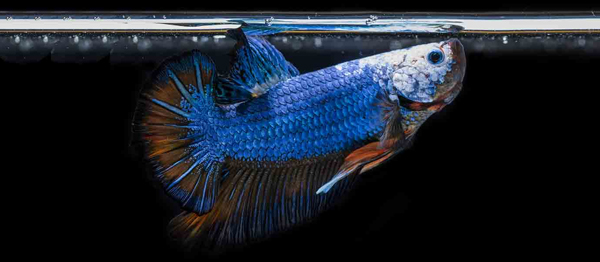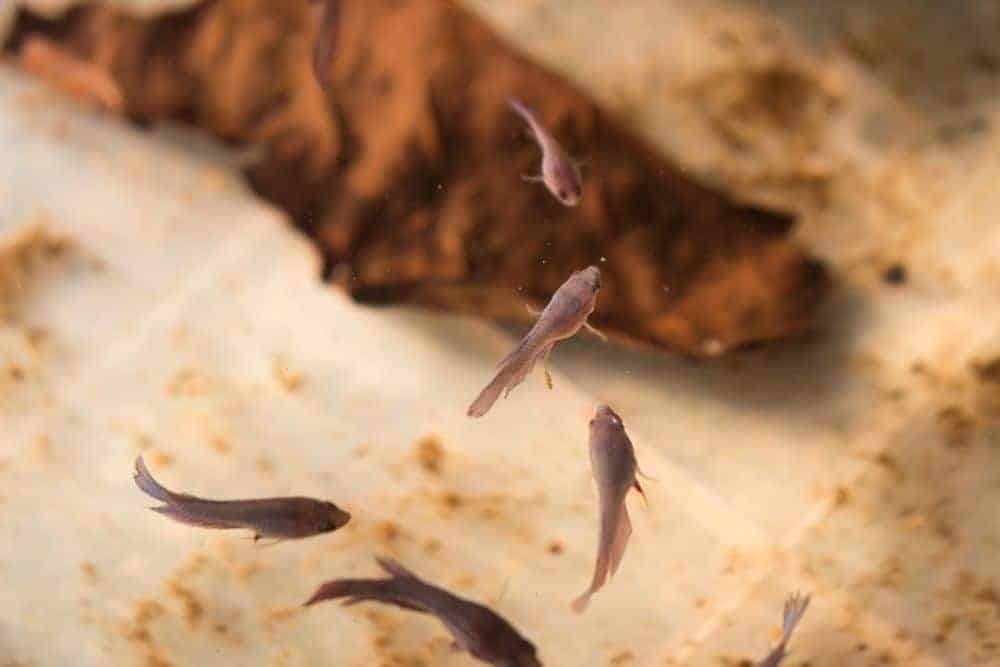Betta Daphnia
Betta fish are beautiful and captivating aquatic creatures that require proper care. Among the critical elements of their diet is daphnia. However, most betta keepers struggle with the uncertainties surrounding daphnia. You may be wondering, can betta fish eat daphnia? How much is too much? How often should you feed them daphnia? These questions lead us to today's topic: betta daphnia and everything you need to know about this essential food source.
Understanding the Pain Points of Betta Daphnia
As a betta keeper, it can be frustrating to feed your fish a balanced diet when there is so much confusion surrounding a particular food source. Daphnia is an excellent source of nutrients such as protein and fiber, but a lack of proper guidelines can limit its nutritional benefits. The fear of over or underfeeding your betta fish can lead to anxiety and confusion, ultimately affecting their overall health.
What is the Target of Betta Daphnia?
The target of betta daphnia is to provide a complete and balanced diet containing vital nutrients, including protein, fiber, and minerals. Daphnia helps in digestion, reduces constipation, and enhances your betta's immune system. This small crustacean ensures optimal growth and development in your fish, resulting in a healthier and more active aquatic pet.
Summary of Main Points
Feeding your betta daphnia is essential for their overall health and growth. Daphnia provides vital nutrients such as protein and fiber, aids in digestion, and improves the immune system. Despite its benefits, feeding your betta daphnia can be challenging; therefore, it's essential to follow the right guidelines to avoid over or underfeeding your fish.
Betta Daphnia and My Personal Experience
As a betta keeper, daphnia has played a vital role in the overall health and growth of my betta fish. During one instance, I noticed that my betta fish was constipated and uninterested in food. After a series of tests, my veterinarian recommended feeding my fish daphnia; I was skeptical at first, but after a few days of feeding, my fish's health started improving. I noticed his bowel movement improved, and he became more active and interested in food. Since then, I've incorporated daphnia into my fish's diet and noticed positive growth and overall health.
Betta Daphnia and Maintaining a Healthy Diet
Feeding your betta daphnia can be tricky since you have to ensure you provide the right amount of nutrients to maintain a healthy diet. To ensure you maintain a balanced diet in your betta fish, you should feed them daphnia two to three times a week. Amino acids, proteins, and carbohydrates are essential components of a betta fish's diet. You can supplement your fish's meals with betta pellets, bloodworms, brine shrimp to achieve a balanced diet.
Betta Daphnia Health Benefits and Nutrient Content
Daphnia is a rich protein source with up to 70% protein concentration—these small crustaceans are a fantastic source of fiber, which helps with digestion and reduces constipation. Daphnia is also rich in vitamins like A, B12, and minerals like iron, potassium, and calcium, which assist in keeping your betta fish healthy and active. When feeding your fish with daphnia, ensure that you rinse and remove any uneaten food particles to avoid water contamination.
Can Overfeeding My Betta Daphnia Cause Harm?
Yes! Overfeeding your fish with daphnia can cause health problems such as bloating and constipation. Daphnia is high in fiber, and too much fiber can cause digestive issues in your betta fish. To avoid overfeeding, it's crucial to monitor your fish's feeding habits and adjust the amounts accordingly. Additionally, supplementing your fish's diet with different foods ensures that your fish doesn't rely solely on daphnia.
Question and Answer about Betta Daphnia
Q) How much daphnia should I feed my betta fish?
A) You should feed your betta fish daphnia two to three times a week.
Q) Can daphnia cause constipation in my betta fish?
A) No. Daphnia has high fiber content, which reduces constipation.
Q) How do I know if my betta fish is constipated?
A) Some of the symptoms are inactivity, loss of appetite, and a bloated stomach.
Q) How do I prepare daphnia for my betta fish?
A) You can feed your betta fish live, frozen, or freeze-dried daphnia. Rinse them in fresh water to remove any uneaten food particles before feeding.
Conclusion of Betta Daphnia
Betta daphnia is an essential food source for your betta fish. These small crustaceans provide vital nutrients such as protein and fiber, which improve their growth and keep them healthy. Although feeding your fish daphnia can be challenging, following the right guidelines ensures that you provide your fish with a balanced diet. By monitoring your fish's feeding habits and supplementing their diet with different foods, you can achieve a balanced and healthy diet for your betta fish.
Gallery
Can Betta Fish Eat Daphnia? (Answered!) – BettaFishKeeper.com

Photo Credit by: bing.com / betta daphnia
Hikari Bio-Pure Freeze Dried Daphnia For Pets Review - Fish Care

Photo Credit by: bing.com / daphnia hikari freeze dried betta pets pure bio review fish
Daphnia For Betta Fish (Live, Frozen & Freeze-Dried How-to)

Photo Credit by: bing.com / betta daphnia
How To Make A Daphnia Culture At Home With A Planted Aquarium | Keeping

Photo Credit by: bing.com / daphnia planted genus
Culturing Daphnia: Setup, Harvesting, And Maintaining

Photo Credit by: bing.com / daphnia fish culturing setup betta raise harvesting maintaining fries feeding aquarium close been food
